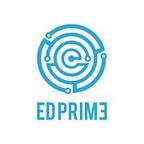Technology has catalysed the advancement of the education industry; innovative learning solutions have emerged. The education sector has seen exciting and interesting developments over the last year. These trends are the start, and not the end of it, the improvements that are crucial to the sector, and are becoming affordable for a vast number of prospective students in genuinely quality education.
These are the top 5 developments, which will pave the way for a better school system in the future:
1. Shift towards non-conventional courses
Perhaps the biggest trend is to choose which course to learn for the students. India has long been described as an economy in which graduates concentrate on becoming doctors, lawyers, accountants, and engineers and even though it is still valid largely, the variety of programs, as they offered it, has opened up the market for other avenues. There are YouTubers and social media influencers who are independent players, who’s success has opened up a different set of opportunities itself, which were earlier not imagined. Today, students are looking to explore further skills and vocational courses in areas such as Video Editing, Design thinking, Fashion, Marketing, PR, Communications, and other niche fields such as e-commerce, Hospitality, Food & Catering, Data Science, Machine Learning, Artificial Intelligence, even specialisation in Edu-Tech programs. One such initiative to inculcate the new skills is dream career’s idx.education initiative.
2. Virtual learning
With the onset of COVID-19 and work from home settings, the professionals have shown curiosity for learning new things. Growing awareness about technology is steadily and gradually making online education, including online training courses and exams, a commonplace. The learning that can be augmented using the virtual world is gradually being stressed by programs and organisations. It is estimated that online schooling is likely to be USD 2 billion in India by 2021 according to studies conducted by KPMG and Google. We are seeing blending technology and instruction to create a high-grade and personalised curriculum for kindergarten to 12th-grade students. Online schools driven by K-12 steadily gain popularity as they blend conventional teaching with new technologies and digital learning resources.
3. Concept-Based learning anytime and anywhere
The transition to digital encourages concept-based learning that helps students to develop key skills and be prepared for careers in the future. It also moves the emphasis from learning focused on teachers to learning centred on students.
The trend in learning shifts and transfers from machines to cell phones. The even more cell phone penetration in the world, more so in India and the fast rise in digitalisation in urban and rural areas fuel the pattern of learning everywhere. Thanks to the Digital India and AtmaNirbhar India initiative as well, which are helping accelerate the adoption. STEM edtech players such as Tinkerly are providing the STEM kits for kids to imbibe learning by doing.
4. Student Assessment using Artificial Intelligence (AI)
For students using online test systems powered by AI, they experience personalised evaluations. AI-based programs offer valuable insights into the performance of students and the group for each topic/subject. During the traditional manual evaluation of the tests, there are chances of biases creeping in. Since online resources and methods are used to assess the student, it will remove biases of manual evaluation.
5. Gamification and Self Analysis
Gamification has changed the attitude of learning. It helps students in their learning processes to learn to use computer game design and game elements. It enhances attendance by catching students’ attention and increasing engagement. It allows students to test their results with intuition and decreases the risk of partiality by different data analysis algorithms. Learning through games allows not only students to develop their skills, but also makes the whole learning process enjoyable and effective. A case in point being, Gidimo, a Nigerian start-up backed by the likes of Google and Facebook, is gamifying the learning experience for the kids in West Africa.
Conclusion
Perhaps a spark for creativity will emerge from the COVID-19 crisis. For example, schools in Cleveland recommend scrapping grades to encourage skill-based learning. Schools in Australia and India have briefly shifted their school schedules. When education systems figure out how to catch up on the missed lessons stemming from the COVID-19 pandemic, maybe summer school in 2021, may be the first step toward a more innovative learning system.
EdPrime shall be partnering with new age-relevant edtech companies to help schools and students access the most relevant products and solutions.
